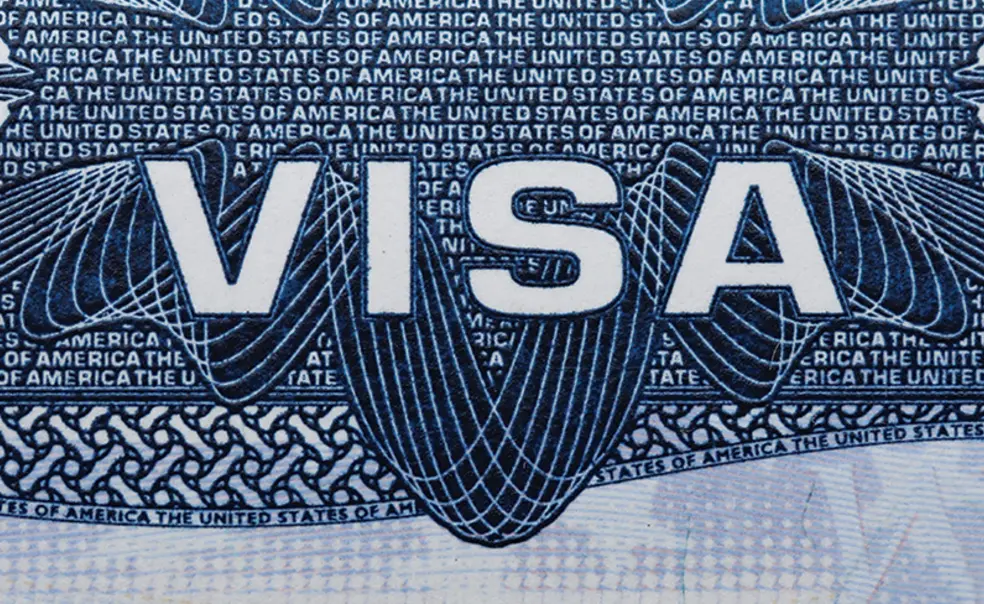International Grad Students Grapple With Shifting Federal Policies, Travel Bans
PAW spoke with three international Princeton graduate students who requested anonymity to avoid retribution
Halts on new visa interviews, expanded ICE raids, and travel bans are just a few of the Trump administration tactics that have created an environment of fear and frustration for international students on college campuses across the country. At Princeton, international graduate students have faced a semester of uncertainty as policies are frequently changing and their options to continue their studies and research work remain unclear.
“This year was a very difficult one, and everyone is expecting things to become much worse next year,” says one graduate student who is from one of the countries restricted by the travel ban enacted in early June. The student says they’ve been left wondering “what will be the point where I won’t feel safe anymore?” PAW spoke to three international graduate students who requested anonymity to avoid retribution.
All say they had to cancel travel plans abroad due to concerns about their abilities to reenter the country. And they all expressed concern about their topics of research making them targets — especially if their electronic devices were subject to search at an airport. In early June, two were also experiencing visa-related issues and were unsure if they would be able to obtain the proper forms to extend their student status.
Similar feelings were reported more broadly in a survey of 68 international students representing 22 countries conducted by Princeton’s Graduate Student Government. It found 97% reported feeling anxious, and 53% said the situation has impacted their academic progress and/or research activities.
This is “a really, really horrible and totally ridiculous situation where the administration is targeting the students really for no good reason whatsoever,” says David Bell, a professor of history.
According to the Davis International Center’s 2023-24 data, 2,318 international students were enrolled at Princeton, making up 23% of the student body. Nearly 50% of those international students are pursuing graduate degrees. Of the graduate student population, international students make up 42% and the top countries represented are China, Canada, India, and South Korea.
Students are grappling with a range of questions. Is international travel worth the risk? Should they self-deport? Could they continue their research remotely if they are stranded abroad? Is it more prudent to continue their studies elsewhere?
To address these concerns, the University has offered resources. “Princeton University and the Davis International Center remain committed to supporting our international students and scholars.The Davis IC is connecting directly with those impacted by recent federal actions and providing personalized guidance, in addition to also engaging with the broader international community to share timely updates and insights as the situation develops. We recognize that these changes and the uncertainty they bring can be unsettling. We will continue to provide updates as more information becomes available and encourage international students and scholars to reach out to their Davis IC adviser if they have any questions or concerns,” University spokesperson Jennifer Morrill said in a statement to PAW.
Professors are also trying to offer support but note the situation has taken its toll. “I think it’s really unfair to [students], and it takes away from their research and takes time away from their studies, and it has a negative impact on the whole University enterprise,” says Meredith Martin, a professor of English.
While she’s observed great efforts by staff and faculty members, she feels the University system is overwhelmed. “We just simply do not have the boots on the ground to supply our students with an adequate kind of scaffolding or infrastructure for getting the right kind of legal counsel quickly, and that’s been really hard to navigate,” she says, adding that Princeton’s alumni network could potentially offer some additional support.
Jeremy Zullow ’17, an attorney who has been working with students, agrees. During Reunions, he moderated a panel discussion on the complicated climate for international students in the U.S. and the possible implications.
Given the recent attempts by the Trump administration to block international students from attending Harvard, Zullow says he believes universities will need to stand up and do more. “I think universities like Princeton, in anticipating similar actions being taken against them, need to start preparing to handle these matters on the university scale, rather than leaving them to this sort of case-by-case basis.”
In the meantime, international graduate students are forced to wait and see what happens next.












No responses yet